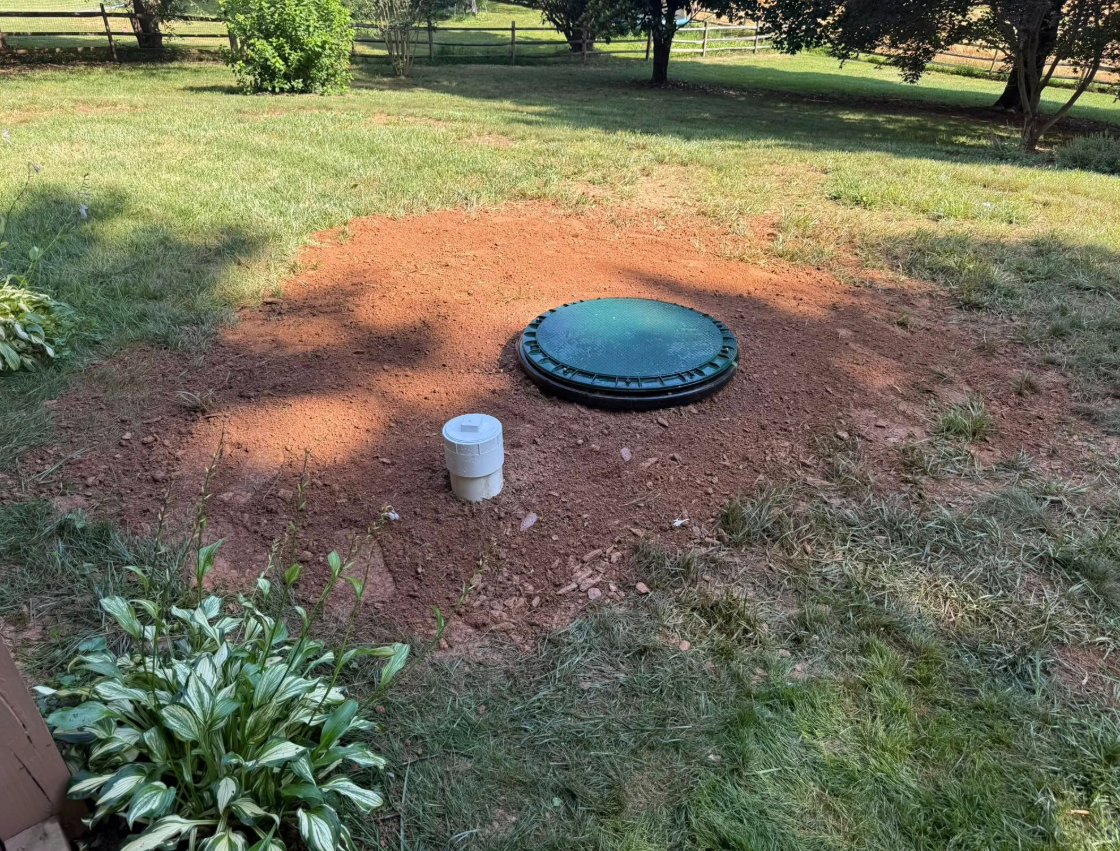The Impact of Heavy Rains on Your Septic System
Heavy rainfall can wreak havoc on septic systems, turning a critical home utility into a major headache. At Colson’s Septic Services, we’ve seen homeowners affected by backups, damaged drain fields, and costly repairs. Here’s what you need to know—and how you can prepare.
- How Heavy Rains Affect Your Septic System
Saturated Drain Fields
A septic system relies on the drain field—buried perforated pipes surrounded by soil—to filter effluent from your septic tank. When rain soaks in the soil, its ability to absorb wastewater decreases dramatically. Wastewater can rise to the surface, slow draining begins, and in worst-case scenarios, sewage can back up through toilets, showers, and sinks.
Structural Risks & System Displacement
Excess groundwater lifts into septic tanks and lines, potentially shifting or cracking them. Even intact tanks can destabilize if the surrounding soil becomes boggy. Flooding can also deposit mud and debris in the system, clogging filters and drain fields .
Backflow Into the Home
Floodwater may push sewage back into your plumbing, contaminating living spaces and exposing occupants to bacteria and disease-causing pathogens. Exposure risks increase dramatically when wastewater surfaces in your yard or home.
- Common Signs You’re in Trouble
- Slow drains in toilets, showers, and sinks—your drain field is struggling.
- Standing water or puddles above your drain field—your soil is saturated and not absorbing.
- Foul odors near the tank or field—effluent hasn’t been properly filtered.
- Gurgling sounds in pipes—air and water cannot flow freely.
- Backups into your home—effluent has nowhere else to go.
- What to Do During & After Heavy Rain
Conserve Water Immediately
Cut off nonessential water use—dishwashers, washing machines, showers—to ease stress on an already overloaded system.
Avoid Flushing Unless Necessary
Maintain hygiene with sponge baths, and delay non-essential flushing until the ground and tank level stabilize.
Monitor for Problems
Once rain halts, check for new wet spots, odors, or pooling—red flags of drain field failure.
Delay Pumping Until Dry
Pumping a tank when soil is saturated could cause it to collapse or shift. Wait until conditions improve.
Test Private Wells
If your well is near a failing system, test your water for bacteria and nitrates before resuming use .
Arrange Professional Inspection
Have Colson’s technicians check your tank, pipes, and drain field after heavy rain. We’ll assess any damage and advise on the next steps, including repairs or upgrades.
- Preventive Measures & Upgrades
Pump Regularly
Septic tanks should be inspected every 3–5 years. Keeping them at proper levels helps avoid backups during heavy rain.
Improve Site Drainage
Grade landscaping to direct rainwater away from septic components. Consider options like French drains to reduce saturation.
Ensure Tight Tank Fittings
Properly sealed risers and lids prevent groundwater infiltration during storms.
Gutters & Downspouts
Maintain and extend downspouts at least 10 feet from the drain field to divert roof runoff.
System Upgrades
For homeowners in flood-prone zones, consider a mound system, aerobic system, or enhanced drain field for superior resilience.
- How Colson’s Septic Services Helps
Located in Westminster, MD, Colson’s Septic Services offers over 30 years of septic solutions, including 24/7 emergency support .
We provide:
- Thorough inspections after rain events
- Prompt pumping, cleaning, and repairs
- System upgrades tailored to your property
- Expert advice on landscaping and water management
- Reliable, certified service for Carroll, Howard, Baltimore, Frederick, and Montgomery counties
Conclusion
Heavy rainfall can test your septic system’s limits—but with the right preparation and professional support, you can reduce the risk of backups and costly damage. If you suspect issues after a storm—or just want to safeguard your system—contact Colson’s Septic Services. Our experienced team is ready to assist, rain or shine.
📞 Need help now? Call Colson’s Septic Services at 443‑536‑9382 for fast, reliable septic inspection and repair—available 24/7.


